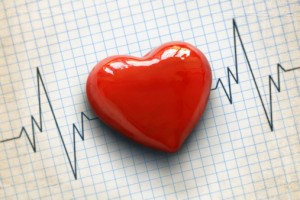By CAPE COD HEALTHCARE
February is national Heart Health Month, a time when we look at the latest heart health news and shine a spotlight on heart disease in the U.S. There are many myths surrounding heart disease and one of the most prevalent is that it affects men more than women. In fact, according to the American Heart Association (AHA), heart disease is the number one killer of women and men, and more women than men suffer from it. While one in 31 American women dies from breast cancer every year, heart disease claims the lives of one in three.
a time when we look at the latest heart health news and shine a spotlight on heart disease in the U.S. There are many myths surrounding heart disease and one of the most prevalent is that it affects men more than women. In fact, according to the American Heart Association (AHA), heart disease is the number one killer of women and men, and more women than men suffer from it. While one in 31 American women dies from breast cancer every year, heart disease claims the lives of one in three.
Heart disease affects women of all ages. According to the AHA, younger women who combine birth control pills and smoking boost their heart disease risk by 20 percent. The risks increase with age, due to things like overeating and a sedentary lifestyle, which cause plaque to build up in arteries. Another risk factor is heredity. Women who have a family history of heart disease have an increased chance of developing it themselves.
Another common myth surrounding heart disease is that you will know when you have it. But, 64 percent of women who die suddenly of coronary heart disease had no previous symptoms. And, according to the AHA, symptoms of the disease vary widely in men and women, leading to misunderstanding. The extreme chest pain that we associate with a heart attack is not the only symptom. Women are somewhat more likely to experience symptoms like:
- Shortness of breath
- Nausea and vomiting
- Back or jaw pain
- Dizziness
- Lightheadedness or fainting
- Pain in the lower chest or upper abdomen
- Extreme fatigue
Yet another myth about heart disease is that it doesn’t affect women who are fit. Factors like cholesterol, eating habits and smoking can counterbalance your other healthy habits. The AHA recommends that women start checking their cholesterol at age 20, or earlier, if your family has a history of heart disease. Checking your blood pressure is also important.
Every year, the AHA works with the federal Centers for Disease Control and Prevention (CDC) and the National Institutes of Health to compile comprehensive, up-to-date statistics on heart disease, stroke and other vascular diseases. Some of their latest findings include:
- Heart disease is the number one killer of women, and is more deadly than all forms of cancer combined.
- Heart disease causes one in three women’s deaths each year.
- An estimated 43 million women in the U.S. are affected by heart disease.
- Ninety percent of women have one or more risk factors for developing heart disease.
- Since 1984, more women than men have died each year from heart disease.
- Only one in five American women believes that heart disease is her greatest health threat.
- Women comprise only 24 percent of participants in all heart-related studies.
All of this information points to the importance of establishing care with a primary care physician who can work with you to reduce your risk and treat any underlying heart disease. If you are at risk of or suffering from heart disease, your family physician can refer you to a cardiologist for assessment and any treatment that may be necessary.
The Cape Cod Healthcare Heart and Vascular Institute was launched in 2014 and offers cardiovascular patients coordinated and comprehensive care. This unprecedented partnership between CCHC and cardiovascular specialists on Cape Cod brings together the skill and experience of specialists and the full resources of CCHC, so that cardiovascular patients can receive the latest, state-of-the-art care right here on Cape Cod. The medical specialties represented in the CCHC Heart & Vascular Institute are:
- Community cardiology
- Vascular medicine
- Electrophysiology
- Interventional Cardiology
- Interventional Radiology
- Vascular Surgery
- Cardiac Surgery
- Inpatient Hospitalist Cardiology
- Cardiac Rehabilitation
The good news is there are many things you can do to prevent or reduce your risk of heart disease. The federal agencies’ studies show that healthy choices have resulted in 330 fewer women dying from heart disease per day. According to the AHA, these are some steps you can take to lower your risk:
Thank you to Cape Cod Healthcare for providing this important information. For additional information, please visit the Cape Cod Healthcare website by clicking here.
You can also view CapeCod.com’s Sunday Journal Segment with Dr. Mallory Hatfield and Dr. Elissa Thompson by clicking here.

























